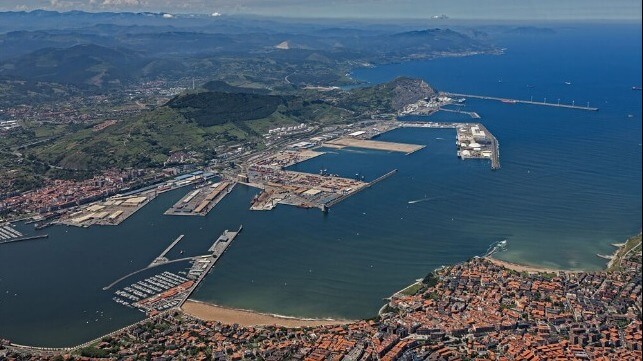Spain Advances Plans for Maritime Hydrogen Corridor to the Netherlands

Efforts to develop the imports of hydrogen as an energy source for shipping and industrial users in Northern Europe advanced with a flurry of new agreements linked to the state visit of the Netherlands’ king to Spain. Among the agreements, Spanish energy company Iberdrola advanced its export plans to Rotterdam, with Yara and Cepsa announcing a competing project to Rotterdam, and the ports of Amsterdam and Bilbao signing an import agreement.
Span looks to use these agreements as an effort to expand its developing green energy industry, which is growing in several regions o the country. Iberdrola reports it plans to invest more than €3 billion into the sector with more than half focused on Spain including its current Puertollano facilities in the center of the country. Cespa is focused on the Andalusian valley region for its efforts, while Bilbao in northern Spain looks to become a terminus for a green hydrogen corridor to the Netherlands.
Iberdrola entered into two agreements signed with ACE Terminal and Hynetwork Services as part of its plans to build a green hydrogen maritime corridor between Spain and the Netherlands. This builds on the previous agreement announced in December 2022 with the Port of Rotterdam to export green hydrogen and its derivatives to the Netherlands.
Iberdrola aims to transport green ammonia to ACE Terminal's import facilities in the Port of Rotterdam, to handle and store, and convert ammonia into green hydrogen, for end use in industry, or direct use in shipping and other industries in northwestern Europe. Transport and distribution will be carried out through the Dutch national hydrogen network of Gasunie's subsidiary Hynetwork Services in the European market to customers in the chemical, steel, refining, and fertilizer industries.
Production will center on Iberdrola's Puertollano plant, located in Ciudad Real, which consists of a 100 MW photovoltaic solar plant. It has a lithium-ion battery system with a storage capacity of 20 MWh and the largest green hydrogen production system in Europe (20 MW). With an investment of €150 million, it will be able to produce up to 3,000 tons of green hydrogen per year, according to Iberdrola. Gasunie, HES International, and Vopak are working to develop a hydrogen import terminal at the Port of Rotterdam to receive the ammonia shipments.
Also, during King Willem-Alexander’s visit to Spain, Yara Clean Ammonia and Cepsa formed an alliance to ship hydrogen in the form of ammonia between the ports of Algeciras and Rotterdam. Yara will supply the ammonia for delivery to Cepsa’s industrial and maritime customers in Rotterdam and Central Europe. To realize the efforts, Yara Clean Ammonia becomes a partner of the Andalusian Green Hydrogen Valley. The companies report they will work comprehensively to develop a robust supply chain for realizing the clean hydrogen corridor. Cepsa will build a new green ammonia plant at its energy park in San Roque, Cádiz, near the port of Algeciras, with an annual production capacity of up to 750,000 tons.
"Today’s agreements are a crucial step towards the long-term viability of the Andalusian Green Hydrogen Valley and the implementation of the first maritime corridor of sustainable fuels that will link the South with the North of Europe," said Maarten Wetselaar, CEO of Cepsa. “This is major news for the decarbonization of European shipping and industry.”

that matters most
Get the latest maritime news delivered to your inbox daily.
The Port of Bilbao and the Port of Amsterdam also announced an agreement to develop the maritime corridor between their two ports. Working with a broader coalition of companies, they will team up to develop a renewable hydrogen supply chain, focusing on production in the Basque Country and export to the Netherlands and the European hinterland through the Port of Amsterdam.
The Spanish government has broad ambitions to become a key supplier of renewable hydrogen and e-fuels to, in particular, North-West Europe. These three agreements, signed in the presence of Spain and the Netherlands’ kings and with government officials are all designed to advance the goals and address Europe’s energy transition.
